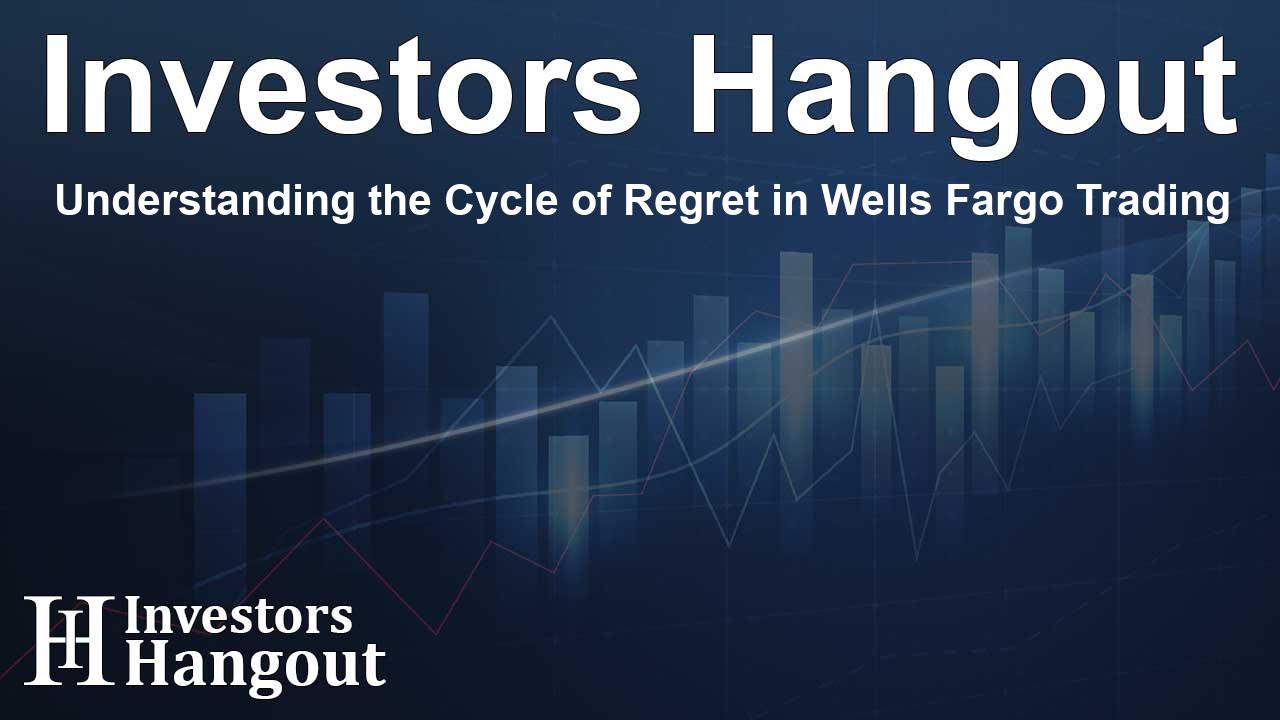Understanding the Cycle of Regret in Wells Fargo Trading

Exploring Seller's Regret in Trading
Seller's regret is one of the most intense emotions in stock trading. This feeling often haunts traders who part with their shares too soon, only to see those stocks climb in value afterward. Many investors grapple with this sentiment, especially during bull markets when prices continuously inflate beyond what they anticipated.
Wells Fargo & Company: A Real-World Example
Today, we’re looking at Wells Fargo & Company (NYSE: WFC) as a clear-cut example of how seller's remorse can trigger notable market shifts. The psychology of traders plays a crucial role here, particularly as many find themselves pondering their choices while watching the stocks they once owned rise in value.
Examining Price Action and Resistance Levels
A closer look at the stock charts tells a compelling story. Back in July, shares were pinned at the important $46.80 resistance level. After hitting this mark, the stock price fell, causing concern among those traders who had sold their shares during the uptick.
Pushing Past Resistance
Fast forward to December, when the market dynamics took a major turn. Wells Fargo managed to push through that same resistance level. This breakthrough ignited a wave of buying activity, as traders who regretted their earlier sales scrambled to buy back shares at this new price point.
Understanding Support Levels
When the stock retreated back to the $46.80 level, those remorseful sellers eagerly seized the chance to buy in again. The high volume of buy orders established a strong support level, turning what was once resistance into support. This transformation is a fascinating trend seen frequently in financial markets.
Upcoming Movements and Projections
The analysis goes further; the next resistance level emerged at $51.20. Early indicators suggested the stock faced challenges at that point. Yet, by late February, a crucial breakthrough was achieved, leading to another surge in stock prices.
Moving Forward as a Trader
Recognizing how emotions and psychological factors impact trading decisions can offer crucial insights for both new and experienced investors. Realizing that price points can morph from resistance to support due to emotional responses can help inform your future trading strategies.
Frequently Asked Questions
What causes seller's regret in trading?
Seller's regret typically arises from emotional reactions when stocks appreciate after they have been sold. Traders might feel like they've missed out on potential profits.
How does Wells Fargo's stock illustrate this issue?
The trading patterns surrounding Wells Fargo's resistance and support levels highlight how regretful traders tend to repurchase shares when they see prices rise.
Can resistance levels turn into support levels?
Absolutely! Price points that first act as resistance can eventually transition to support due to shifts in trader sentiment and overall market conditions.
What lessons can investors take from Wells Fargo's price activity?
Understanding the psychology of the market is vital for making sound trading choices and recognizing the influence of emotional trading behaviors.
Why is grasping trader psychology significant?
Comprehending trader psychology helps investors sidestep common mistakes and allows them to adapt their strategies based on market feelings and trends.
About The Author
Contact Owen Jenkins privately here. Or send an email with ATTN: Owen Jenkins as the subject to contact@investorshangout.com.
About Investors Hangout
Investors Hangout is a leading online stock forum for financial discussion and learning, offering a wide range of free tools and resources. It draws in traders of all levels, who exchange market knowledge, investigate trading tactics, and keep an eye on industry developments in real time. Featuring financial articles, stock message boards, quotes, charts, company profiles, and live news updates. Through cooperative learning and a wealth of informational resources, it helps users from novices creating their first portfolios to experts honing their techniques. Join Investors Hangout today: https://investorshangout.com/
The content of this article is based on factual, publicly available information and does not represent legal, financial, or investment advice. Investors Hangout does not offer financial advice, and the author is not a licensed financial advisor. Consult a qualified advisor before making any financial or investment decisions based on this article. This article should not be considered advice to purchase, sell, or hold any securities or other investments. If any of the material provided here is inaccurate, please contact us for corrections.
